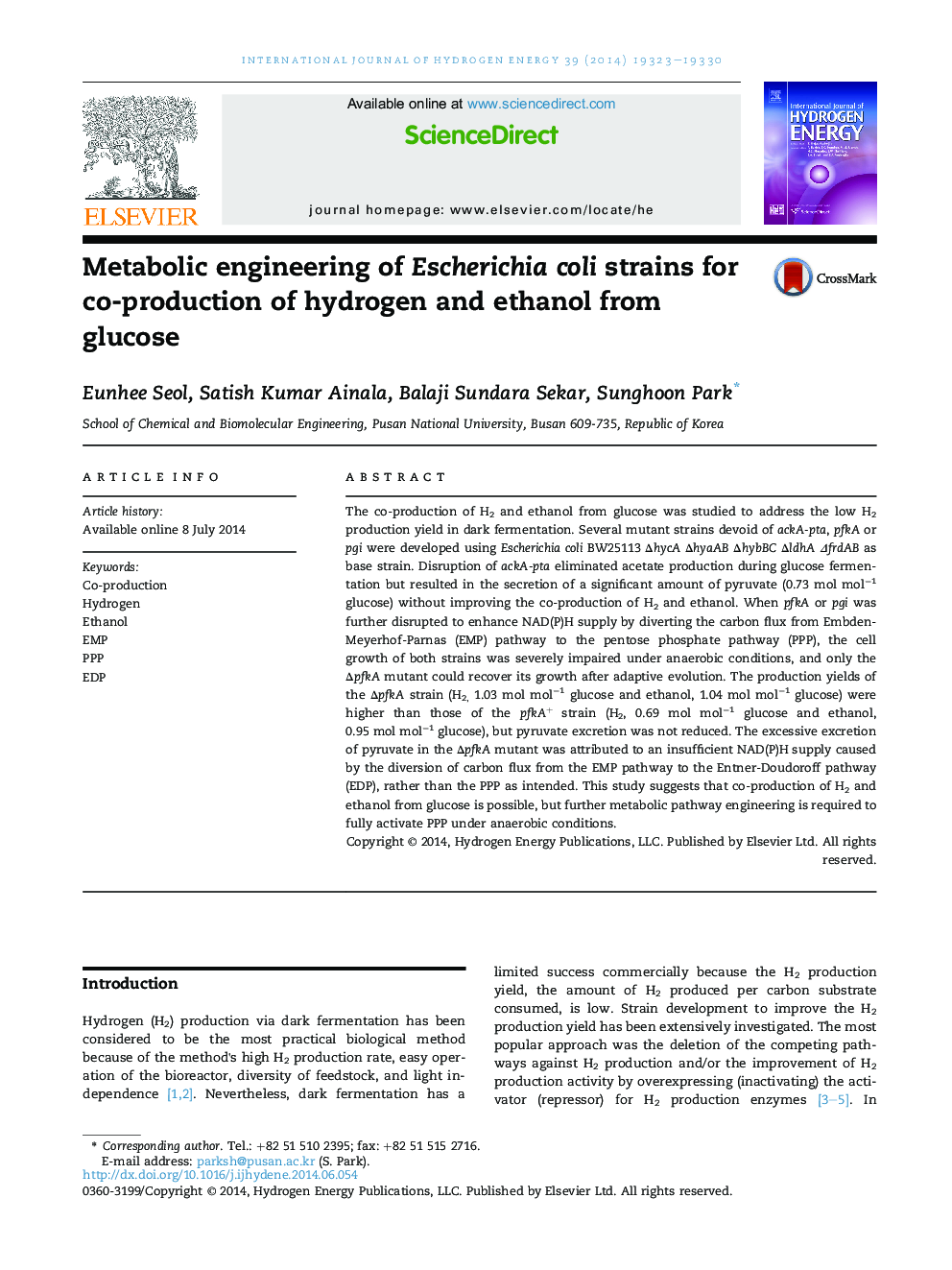| Article ID | Journal | Published Year | Pages | File Type |
|---|---|---|---|---|
| 7717847 | International Journal of Hydrogen Energy | 2014 | 8 Pages |
Abstract
The co-production of H2 and ethanol from glucose was studied to address the low H2 production yield in dark fermentation. Several mutant strains devoid of ackA-pta, pfkA or pgi were developed using Escherichia coli BW25113 ÎhycA ÎhyaAB ÎhybBC ÎldhA ÎfrdAB as base strain. Disruption of ackA-pta eliminated acetate production during glucose fermentation but resulted in the secretion of a significant amount of pyruvate (0.73 mol molâ1 glucose) without improving the co-production of H2 and ethanol. When pfkA or pgi was further disrupted to enhance NAD(P)H supply by diverting the carbon flux from Embden-Meyerhof-Parnas (EMP) pathway to the pentose phosphate pathway (PPP), the cell growth of both strains was severely impaired under anaerobic conditions, and only the ÎpfkA mutant could recover its growth after adaptive evolution. The production yields of the ÎpfkA strain (H2, 1.03 mol molâ1 glucose and ethanol, 1.04 mol molâ1 glucose) were higher than those of the pfkA+ strain (H2, 0.69 mol molâ1 glucose and ethanol, 0.95 mol molâ1 glucose), but pyruvate excretion was not reduced. The excessive excretion of pyruvate in the ÎpfkA mutant was attributed to an insufficient NAD(P)H supply caused by the diversion of carbon flux from the EMP pathway to the Entner-Doudoroff pathway (EDP), rather than the PPP as intended. This study suggests that co-production of H2 and ethanol from glucose is possible, but further metabolic pathway engineering is required to fully activate PPP under anaerobic conditions.
Related Topics
Physical Sciences and Engineering
Chemistry
Electrochemistry
Authors
Eunhee Seol, Satish Kumar Ainala, Balaji Sundara Sekar, Sunghoon Park,
